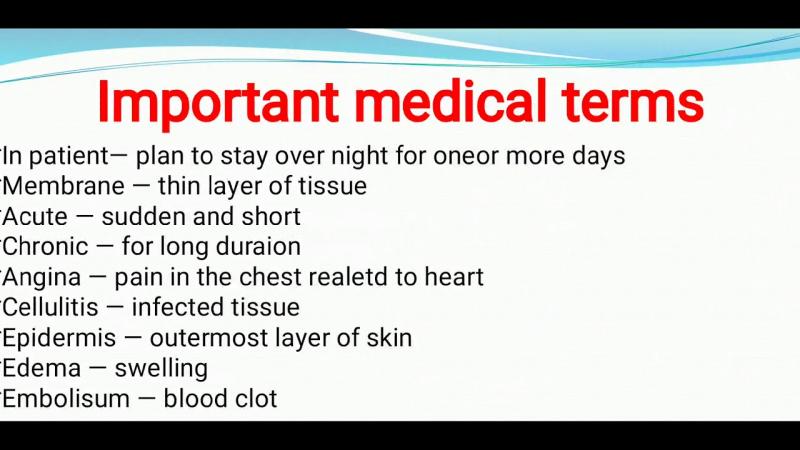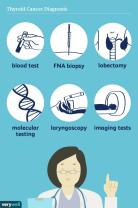What are some examples of medical terms?
Medical terms can be complex and are often derived from Latin or Greek roots. Understanding common medical terms is essential for effective communication in the healthcare field. Here are some examples of medical terms along with their meanings:
Anatomy:
- Definition: The study of the structure and organization of the body.
- Example: Anatomy includes the examination of organs, tissues, and systems such as the cardiovascular or respiratory system.
Physiology:
- Definition: The study of the functions and processes of living organisms.
- Example: Physiology explores how different organs and systems work together to maintain life.
Pathology:
- Definition: The study of diseases and the effects of diseases on the body.
- Example: Pathologists analyze tissue samples to diagnose diseases and understand their causes.
Dermatology:
- Definition: The branch of medicine focused on the skin and its diseases.
- Example: Dermatologists specialize in treating conditions such as eczema, acne, and skin cancer.
Cardiology:
- Definition: The study of the heart and its diseases.
- Example: Cardiologists diagnose and treat conditions like heart attacks, heart failure, and arrhythmias.
Gastroenterology:
- Definition: The branch of medicine focused on the digestive system.
- Example: Gastroenterologists address conditions affecting the stomach, intestines, liver, and pancreas.
Neurology:
- Definition: The study of the nervous system and its disorders.
- Example: Neurologists diagnose and treat conditions like epilepsy, stroke, and Parkinson's disease.
Orthopedics:
- Definition: The branch of medicine dealing with the musculoskeletal system.
- Example: Orthopedic surgeons specialize in treating bone and joint disorders, fractures, and injuries.
Ophthalmology:
- Definition: The study of the eyes and their diseases.
- Example: Ophthalmologists diagnose and treat conditions like cataracts, glaucoma, and macular degeneration.
Otolaryngology:
- Definition: The study of the ear, nose, and throat (ENT) and their disorders.
- Example: Otolaryngologists, or ENT specialists, address conditions like sinusitis, hearing loss, and throat infections.
Obstetrics:
- Definition: The branch of medicine dealing with pregnancy, childbirth, and the postpartum period.
- Example: Obstetricians provide care to pregnant women, including prenatal exams and delivery.
Pediatrics:
- Definition: The branch of medicine focused on the health and medical care of children.
- Example: Pediatricians specialize in the physical, emotional, and developmental needs of children.
Geriatrics:
- Definition: The branch of medicine dealing with the care of elderly people.
- Example: Geriatricians address age-related health issues and provide comprehensive care for seniors.
These examples represent just a small fraction of the extensive medical vocabulary used in healthcare professions. Familiarity with medical terms is crucial for healthcare professionals, and patients may also find it helpful in understanding their health conditions and treatments.
Examples illustrating various medical terms
Sure, here are some examples illustrating various medical terms:
Anatomy
- Bone: The femur is the longest bone in the human body.
- Muscle: The biceps brachii is a muscle in the upper arm that helps to flex the elbow.
- Organ: The heart is an organ that pumps blood throughout the body.
- Tissue: Connective tissue is a type of tissue that supports and connects other tissues in the body.
- Cell: Red blood cells are a type of cell that carries oxygen from the lungs to the rest of the body.
Physiology
- Respiration: The process of breathing, in which oxygen is taken into the lungs and carbon dioxide is released.
- Circulation: The movement of blood throughout the body.
- Digestion: The process of breaking down food into nutrients that the body can absorb.
- Excretion: The process of removing waste products from the body.
- Reproduction: The process of creating new offspring.
Pathology
- Infection: A disease caused by the invasion of microorganisms, such as bacteria, viruses, or fungi.
- Injury: Damage to the body caused by an external force, such as a fall or a blow.
- Cancer: A disease in which cells grow abnormally and uncontrollably.
- Genetic disorder: A disease caused by a change in DNA.
- Autoimmune disease: A disease in which the body's immune system attacks its own tissues.
Diagnosis
- X-ray: A type of imaging that uses radiation to create a picture of the inside of the body.
- MRI: A type of imaging that uses magnetic fields and radio waves to create detailed pictures of the inside of the body.
- CT scan: A type of imaging that combines X-rays with computer technology to create detailed cross-sectional pictures of the inside of the body.
- Ultrasound: A type of imaging that uses sound waves to create pictures of the inside of the body.
- Blood test: A test that analyzes a sample of blood to detect abnormalities.
Treatment
- Medication: Drugs that are used to treat diseases.
- Surgery: The use of instruments to treat diseases or injuries.
- Radiation therapy: The use of high-energy radiation to kill cancer cells.
- Chemotherapy: The use of drugs to kill cancer cells.
- Immunotherapy: A type of treatment that uses the body's own immune system to fight cancer.
I hope these examples help to illustrate the meaning of various medical terms.












